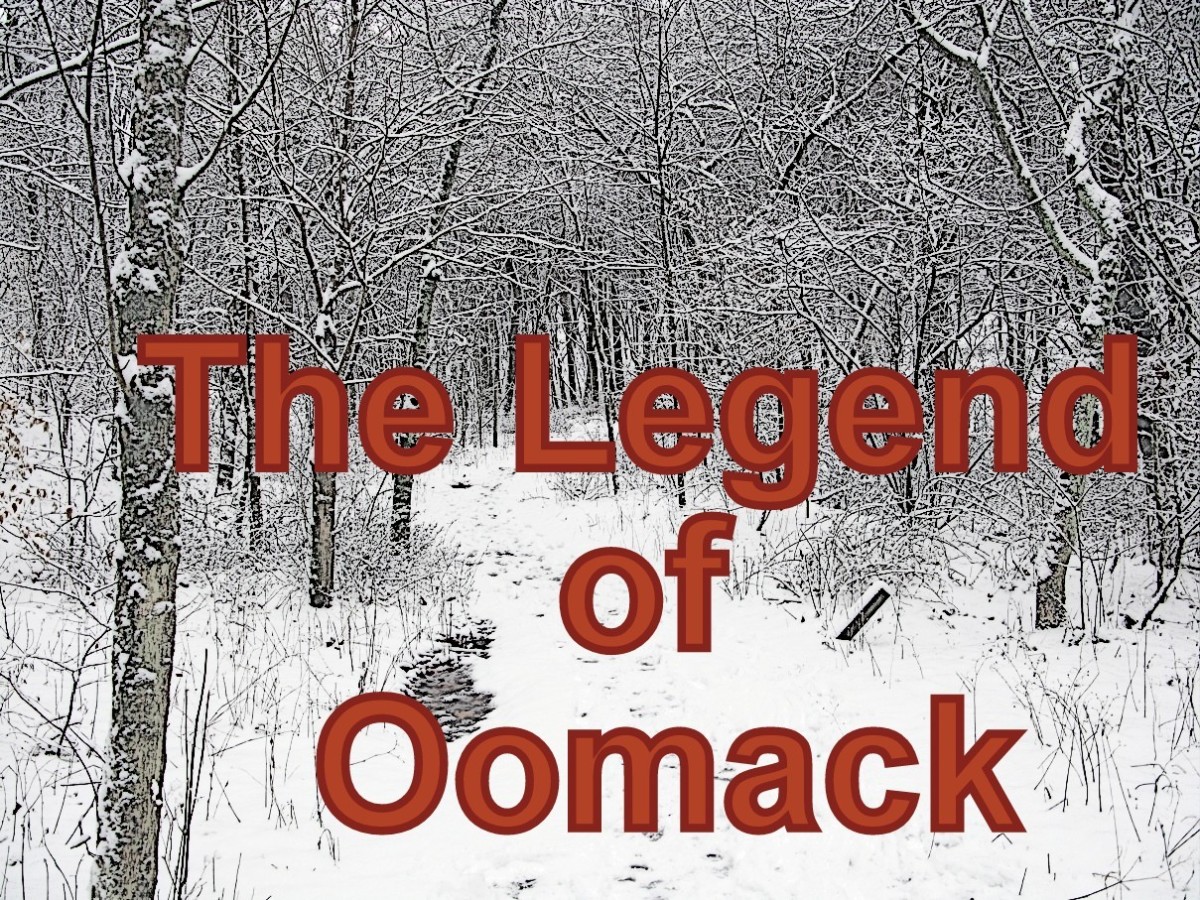- HubPages»
- Books, Literature, and Writing»
- Commercial & Creative Writing»
- Creative Writing
Flash Fiction: A Mountain Man Comes Home - Bill's Challenge
Response to Bill Holland's challenge
This piece of flash fiction is my contribution to Bill Holland's challenge to write from photos he provided, including a mountain, barn, old train, and cemetery. He also specified that the word "mountain" be included in the title.
I'm not really good at writing from photos. I took one look at that combination and said, "No Way! I see no association of these photos," but then my muse kicked me in the butt and the idea took on a life of its own.

The shiny diesel zoomed its way along the tracks through the valleys, and then it made its way more slowly through the winding rails around the mountains. The train passed a series of little towns and wide spots in the road as it cut through the mist that kissed the mountain’s face. Aboard the train was Davy coming home at last to his little community near the top. Davy had been one of the nearly 400 American soldiers who gave their lives to liberate Belgium in 1918 in the Great War.
Davy had lain somewhere in Flanders Fields where the poppies blow beneath the crosses row on row, but he did not lie beneath a cross. He died, a victim of deadly gas, lost somewhere in the muck of war. Location unknown, maybe a poppy marked his spot.
Flanders Fields
In Flanders fields the poppies blow
Between the crosses, row on row,
That mark our place: and in the sky
The larks still bravely singing fly
Scarce heard amid the guns below.
We are the dead: Short days ago,
We lived, felt dawn, saw sunset glow,
Loved and were loved: and now we lie
In Flanders fields!
Take up our quarrel with the foe
To you, from failing hands, we throw
The torch: be yours to hold it high
If ye break faith with us who die,
We shall not sleep, though poppies grow
In Flanders fields
By Lt. Col. John McCrae
Composed at the battlefront on May 3, 1915
during the second battle of Ypres, Belgium
Poppies in Flanders Fields
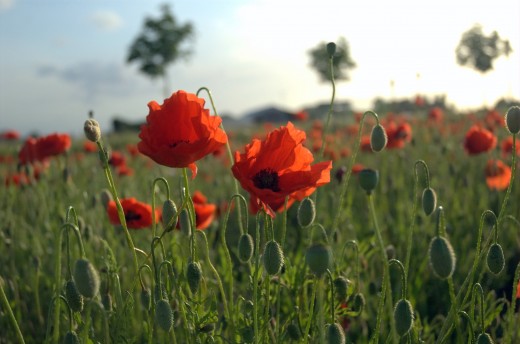
Before 20-year-old Davy enlisted in the Army, he was the pride of Mountainberg. While not of great stature, he was one of the best guards the Mountainberg Cougars basketball team ever had. And being a mountain man, he was a crack shot with a rifle, a real sharp shooter. When a squirrel was so high in a tree that most people had trouble seeing it, Davy could put a bullet right through its eyes. Many times as he left to go hunting, Mama warned him, “Don’t shoot those squirrels in the head, you know your daddy loves the brains.”
The U.S. Army was glad to get such a skilled marksman. At the train station, he gave his mama and papa a quick hug and kiss, but his lips lingered on those of Betty, his high school sweetheart. “Now, you wait for me, Betty, ya hear. Won’t be long, only a year,” he said, as he boarded the old steam train that would take him down the mountain to the army. They planned to be married as soon as he returned from the war.
Then the bad news came that his whole platoon had been the victim of a German gas attack in Belgium, and that he was listed as MIA. “How cowardly! Mustard gas, what a dishonor to our family!” his grieving father had exclaimed. His mother was never the same, and everyone believed that she died of a broken heart from not knowing where her son was. Betty finally gave him up for dead and married his younger brother, Pete.
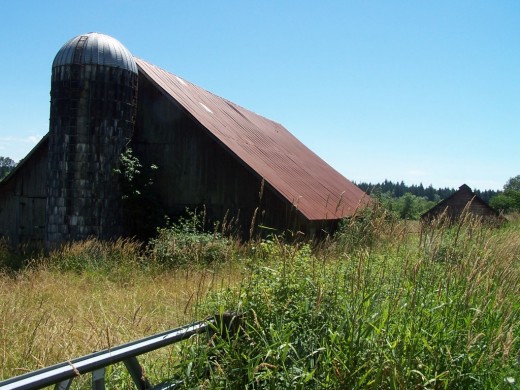
A farmer plowing north of his barn
Then one spring day nearly 50 years later outside Salient, a farmer was plowing a field just north of his barn and unearthed some human remains. Around the neck was a chain with an old rusted dog tag, but Davy’s name, rank and serial number were legible. Just barely. The farmer contacted the authorities, and the wheels started turning for Davy’s return to his family in the U.S.A.
By that time, both of Davy’s parents had gone on to their heavenly rewards, but Pete was beside himself with joy that his elder brother had been found. Pete had regretted being too young to go to war and wished that he had been the one to die, but today he was elated to be alive. He was finally going to put Davey to rest in the family cemetery just on the outskirts of the little town. The monument was already in place in anticipation of Davy’s return.
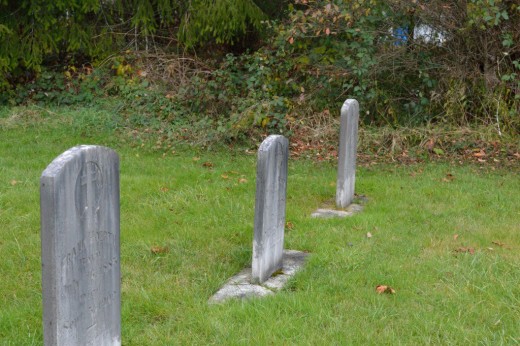
Nearly every able-bodied person in the little town of 259 persons eagerly awaited the arrival of the 12 noon Rock Island that day. They heard its whistle blowing at the crossing of highway 71, only two miles away. Heads turned in the direction of the noise, then hundreds of eyes watched as the train rumbled up the hill. It slowed as it passed the rusty abandoned old steam train that had carried Davy to war and approached the station. Brakes screeched and it came to a halt.
The old train that carried him away
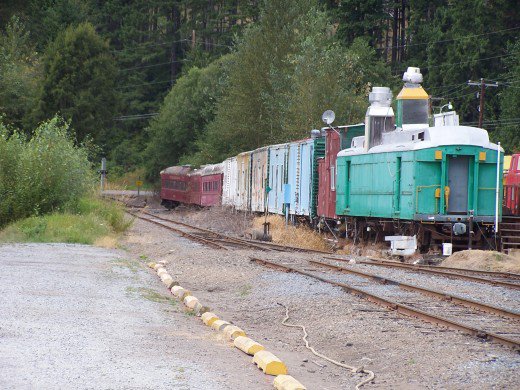
Davy’s coffin, draped in a United States flag, was unloaded. The mayor spoke a welcome for the town’s long lost son. The local high school band played and a parade stood by to escort Davy to his final resting place in the cemetery. Flags waved and the crowd cheered their hero. Pete and Betty hugged each other and cried.
Davy was home at last.
© 2016 Doris James MizBejabbers






